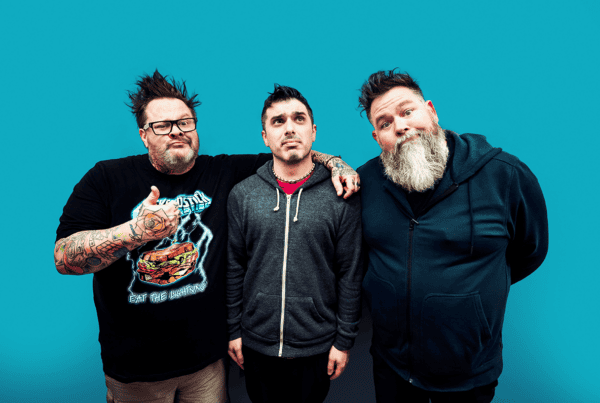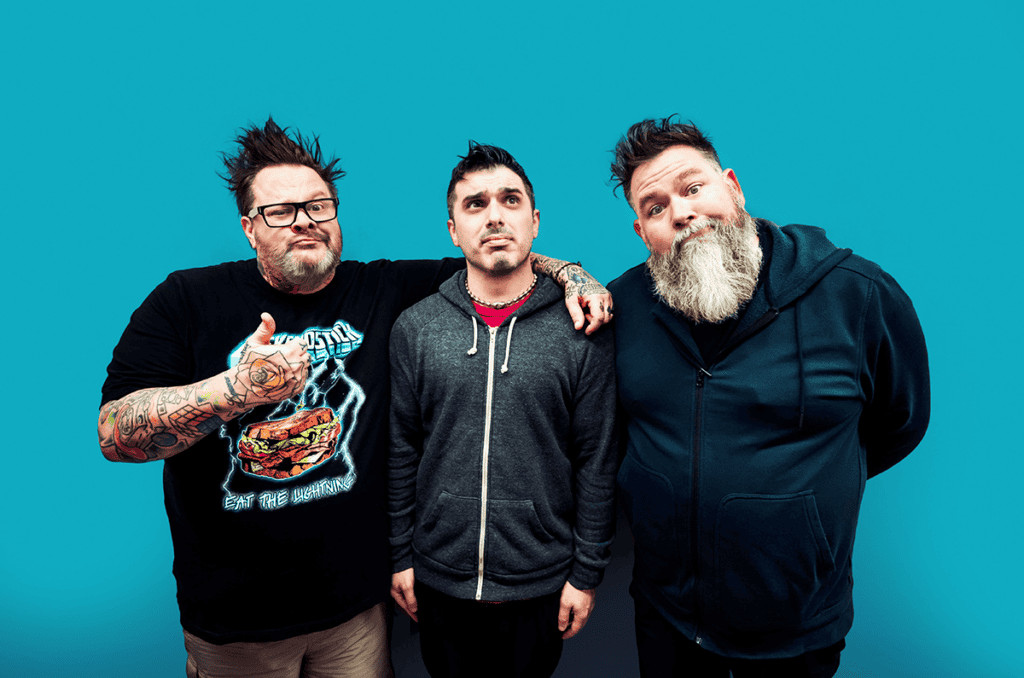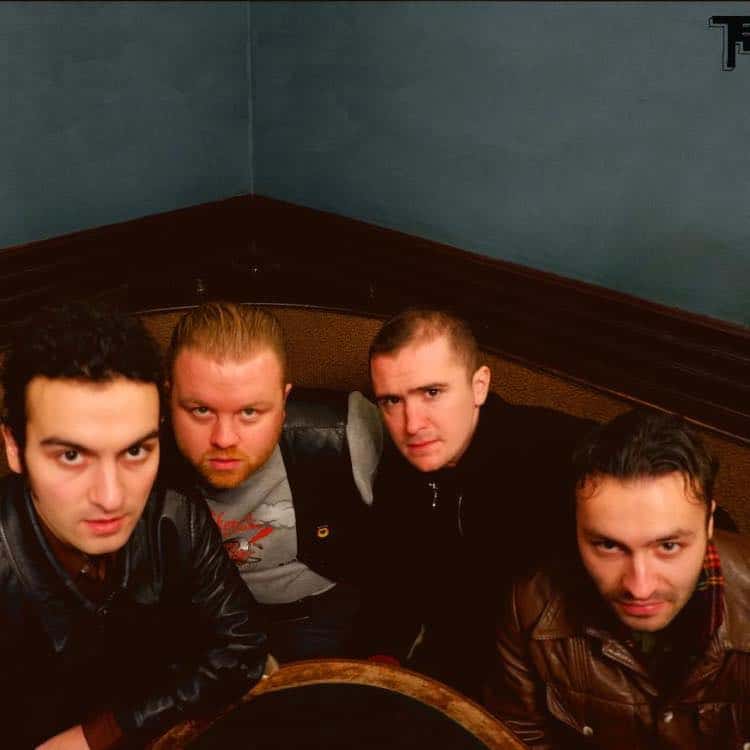Alex Boucher answers some questions around his new book, Three And a Half Minutes of Fame, definitions of success and much more.

S] Hi Alex, how are you today?
I’m good thank you, the sun is shining, and I’ve got some Shoegaze playing on the stereo, life is good!
S] What were the main challenges in developing “Three And A Half Minutes of Fame’?
The biggest thing I struggled with was the narrative – I had all these memorable anecdotes, but I needed to expand them into vignettes, engaging chapters that the reader would enjoy reading and giving the book a compelling story, that went beyond “I was in a few bands back in the day, here’s some random things that happened”.
Also, trying to remember everything that happened, (and when) was a big test on the memory cells! I’m still recalling stuff after the book has been released, it’s very frustrating!
S] There are some very introspective moments throughout the book – what was it like going back to the memory well, and pulling this stuff out, were there any uncomfortable moments, without trying to give to much away – you do share some pretty harrowing experiences?
I had to make a decision halfway through the writing process – should this be a rose-tinted, light-hearted look at my experiences in the 90s, or a more honest, unflinching tale that would draw the reader in? Luckily, I’ve made peace with what happened to me back then, but still found it a challenge to delve into the memory vaults and bring myself to write it down. I think the hardest thing to get my head around was knowing friends and family would be reading it, and what would they think? Happily, everyone has been very supportive and because I knew they would be, it was easier to let go and include the more bleaker times in the book.
S] Talk to me about some of your favourite memories conjured when pulling together the photos that are littered throughout the book – was that a fun process?
Yes, it was great fun to start building an archive of pictures and memorabilia – stuff that I’d kept in boxes and also finding gig posters and pics via social media, which has been really helpful in creating the timeline of the book! Our t-shirt seller for Three and A Half Minutes recently came across a bunch of old photos and she emailed them over, it was great to see photos that I’d never seen before. Other memories that came flooding back from the photos were our time spent in L.A, seeing Graham the toilet on stage and the various gig photos – I think the most iconic one for me is when I trashed my drum kit; luckily, someone took the picture just I was tipping it over, it always reminds me of how mad I was that night!
S] There are also some comedic elements, and maybe a little “gallows humour” towards your journey (touring and your experiences meeting bands like The Pogues, and Suede) through the book – does that come natural to you?
I’ve always had a dark streak when it comes to humour I suppose, but I think a lot of Brits have that “glass-half-empty” outlook on life and tend to try and make a joke out of it – plus, the bands were quite sarcastic, so some of that rubbed off on me too. I’m not sure if I was just very unlucky in the bands I was in compared to other budding drummers, there was always this feeling of “Why is this happening to me? Again??” So it’s best to laugh at it.

S] Are there any of your touring experiences that you still draw inspiration from in any way, at this point in your life?
Very much so. My career involves a lot of travel, so it’s definitely given me the patience when delays happen, and to be used to long journeys behind the wheel! It gave me a great sense of wanderlust, so I’m still excited whenever I visit somewhere new. Part of my job involves running events, so I’m regularly turning up at venues, scoping them out, putting on experiences for an audience, so it feels like things have come full circle in that respect.
S] How do you define success as a musician, and as a person?
I think if you’ve released something for everyone to hear, then that’s a defining moment as a musician. That’s a lot easier to do now, but creating something and having a response from your listeners is what keeps an artist going. For me, success as a person hinges on one thing – happiness. It’s a strong theme throughout the book – if you’re not happy, change it. I think the aspiration for happiness seems to be overlooked a lot in this world.
S] Were/are those definitions shaped by your work on the book at all?
I guess so, I wanted to create something and get people to check it out – so yeah, the definition still applies! And i wanted to be happy with the book before it got published and even though I could have spent more years adding to it, I was satisfied that it would tell the story in the way I wanted to tell it.
S] What is your relationship to the word “fame” at present?
Being older and seeing less “legends” knocking about, it feels like my concept of fame hasn’t aged well. I often wonder who will headline the festivals once Metallica, The Cure, or Dave Grohl all call it a day, it feels our world is lacking in the fame department. But then, I do see Taylor Swift and think there are still few artists that deserve to be famous. Just don’t get me started on reality tv personalities! I watch a lot of music documentaries and it seems nobody has an easy life once they become famous, so maybe I dodged a bullet. But then I think about how many people missed out on hearing my bands and it makes me sad. I guess my relationship with the word is complicated!
S] Talk me through some of your current projects – you work in the video games industry as a sound engineer? So, it would seem your musical journey has gifted you a great career!? Just a different one than you intended!
Yes, my first “real” job after leaving the bands was working in television as a sound engineer – ironically, this was on a channel that would have bands as regular guests, but mainly from the pop world, like S Club 7 and Westlife. After the TV stint, I ended up in video games and it’s only recently that I’ve found a job working for a company that wants to connect musicians with game developers, so things have turned out well in that respect.
S] What is next for you? You mention the possibility of further memoirs?
Yes, the TV career provided some interesting moments that I could maybe write about – coming into contact with all the upcoming pop acts in the late 90s/early noughties proved to be quite an eye-opener. I went on to work for some er, late-night TV channels shall we say, that would be made for gamblers, or featured women in various states of undress. The other idea was to do a Bill Bryson and write about the 6 months of travelling I spent with my wife, in Thailand, Australia and Bali. People always ask me if I’m still drumming, so I’d like to join a band at some point, as I do miss it.
S] Would I be accurate in interpreting the message to anyone reading as – make music to make memories, rather than a career?
Yes, for sure – savour it! Enjoy the process of making music, playing it live, touring up and down the country – at the time, I never thought about the money – I just wanted to play the drums, the money was a secondary thing, up until it became necessary to have a job to pay rent! So live with your parents as long as you can, save up loads of money and then you can be in a band for as long as you want!
S] Thanks for making the time to answer these!
It was my pleasure!
Three and a Half Minutes of Fame” is available to buy now, at Earth Island Books, online and as a digital version.






